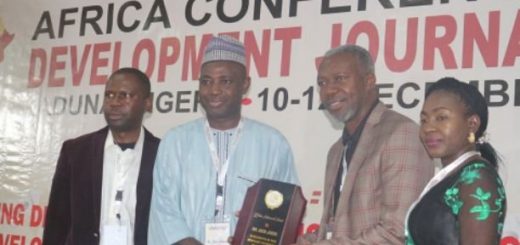UNICEF-Backed Sanitation Program Spurs 7.2 Billion Naira Business Opportunity in Kaduna LG
By Uangbaoje Alex, Kaduna
A new sanitation marketing and financing initiative in Kaduna State, supported by UNICEF under the Accelerating Sanitation and Water for All (ASWA III) project, is unlocking massive economic and public health opportunities for local communities and entrepreneurs.
The initiative aims to move beyond traditional sanitation awareness campaigns and build a thriving sanitation economy in selected Local Government Areas (LGAs), including Lere and Kagarko.
At the heart of this drive are sanitation market hubs, designed to bring together key players to solve one of the region’s most pressing challenges—universal access to improved sanitation.

Speaking during a training session for Toilet Business Owners (TBOs) and other sanitation stakeholders in Kagarko LGA on Wednesday, Abdulsalam Abdullahi, UNICEF National Sanitation Marketing and Financing Facilitator, highlighted the untapped potential in the sector.
“Our market analysis shows that over 71,000 households in Kagarko alone still lack access to improved toilets. This represents a 7.2 billion naira opportunity in the containment segment of the sanitation value chain.
“We’re not just creating awareness, we’re building businesses and livelihoods,” he said.
The program advocates for a shift toward a holistic sanitation ecosystem that includes supply chains, skilled service providers, and accessible financing mechanisms to help households construct and maintain toilets.
To address these gaps, UNICEF has facilitated the training of local masons, block molders, plumbing material vendors, and sanitation-related businesses. These trained TBOs are now positioned as advocates and service providers for improved sanitation within their communities.
The project also promotes a range of toilet options that cater to diverse income levels, ensuring that no household is excluded. Toilet designs are developed with health, dignity, and safety in mind—especially for women and children.
Certain toilet models, such as the double-pit offset system, also provide economic value. These systems allow decomposed waste to be converted into safe, organic fertilizer, offering a cost-effective alternative to chemical fertilizers for local farmers.
HEALTH AND ECONOMIC IMPACT
The availability of improved toilets contributes to reduced disease burden and lowers household healthcare costs. Women and children benefit from safer environments, while children under five are protected from the health hazards of open defecation.
The broader impact includes reduced government health spending and increased progress toward safely managed sanitation targets by agencies like the Rural Water Supply and Sanitation Agency (RUWASSA).
SMEDAN’S ROLE IN ENTERPRISE DEVELOPMENT
The Small and Medium Enterprises Development Agency of Nigeria (SMEDAN) is actively involved, training TBOs on business development. Entrepreneurs are being equipped with skills in bookkeeping, inventory tracking, customer service, and growth strategies.

“Business owners must understand whether they are running at a profit or a loss,” Abdulsalam noted. “With this level of support, TBOs can grow into successful businesses that support both public health and economic development.”
Abdulsalam explained that the effect of poor sanitation leads to “Economic loss. Nigeria loses about 1.3% (₦455 Billion) of its GDP annually due to poor access to sanitation.
“102,000 under-5 child deaths occur each year due to diarrhoea; about 90% are directly attributed to unsafe water and sanitation. 1 in 4 children under 5 exhibit severe stunting due to frequent episodes of diarrhoea and other WASH-related illnesses.
“Frequent episodes of WASH-related diseases cause absence from school or work. This translates to a substantial drain on the nation’s resources. Reduced school enrolment and attendance due to time loss in search of water, frequent episodes of WASH-related illnesses.
“Open defecation results in loss of dignity, increased risks of insecurity and violence against women and children, noting that ₦168.75 billion annually is needed to meet ODF goals by 2030. Households are responsible for closing 75% of this gap.
“Sanitation is everybody’s business, everybody needs to be involved, households, communities, schools, all tiers of government, religious and traditional leaders, the private sector, academia, media, civil society, and international/NGOs must work together to eliminate open defecation; the time to act is now.”
As the ASWA project III expands across Kaduna State, it continues to demonstrate how sanitation can be transformed from a health challenge into a driver of dignity, safety, and economic empowerment in underserved communities.
While appreciating the role of the Kaduna State Government in championing and support to WASH activities, the Facilitator noted that “government role is indispensable. State-funded sanitation pool funds, matching funds, supportive policies, and enforcement are critical for scale.
“Quick release of committed funds, cost-effective model for sanitation financing, attracting private sector participation in the sanitation sub-sector (MFIs, investors), accelerating ODF progress by making sanitation more affordable and creating job opportunities in the sanitation value chain are to sustainable & scalability optimal budget use and ODF achievements.”
Business Model Canvas is expected to be created for each TBO to inform their strength, weaknesses and growth opportunities across Value proposition, key activities, Revenue, customer segments, key resources, channel of communication, key partners, customer relationships and price structure as TBOs delivering sanitation services in the affected LGAs.





